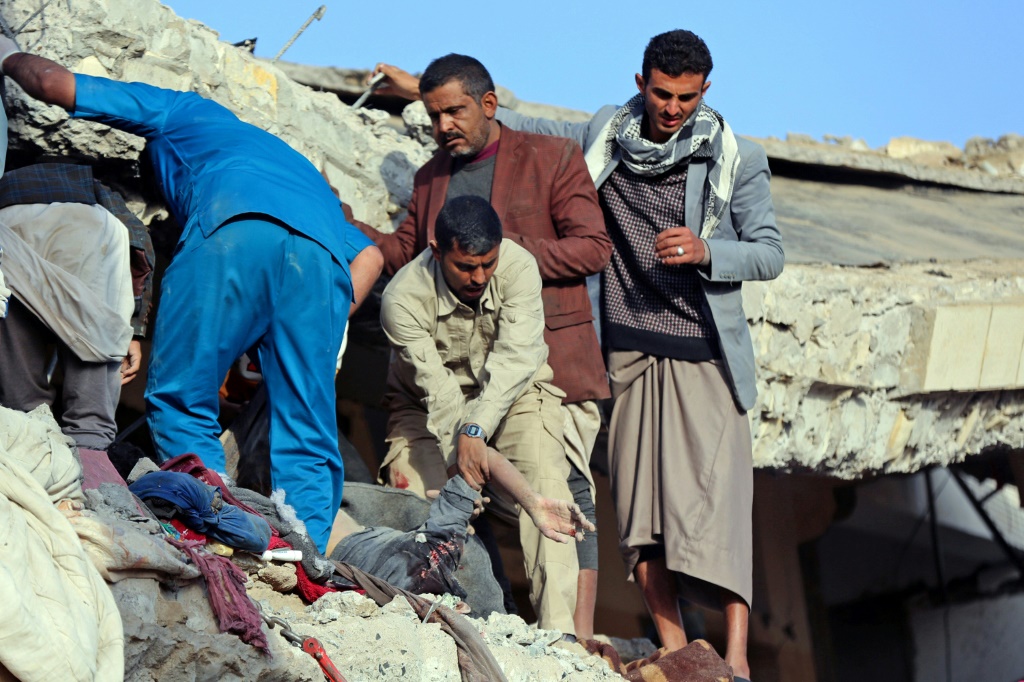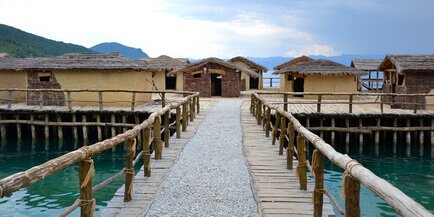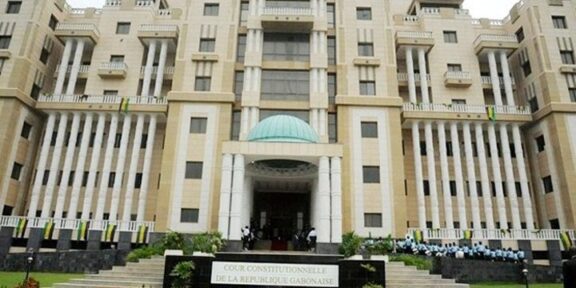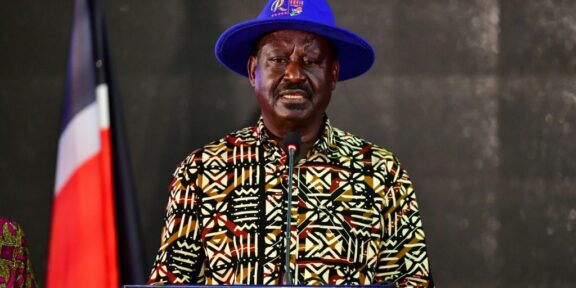Yemeni rescue workers searched through rubble for survivors Sunday, two days after an attack on a prison killed at least 70 people, as an aid group said the Saudi-led coalition has “no way to deny” it hit the facility in an air strike.
Digging through the debris with their bare hands, the rescue teams combed the destroyed prison in rebel-held Saada, with nearby hospitals already overwhelmed by more than 200 killed or wounded.
“Rescue operations are still ongoing,” International Committee of the Red Cross spokesman Basheer Omar told AFP, adding they were still looking for “missing and dead people”.
The Saudi-led coalition that has been fighting the Iran-backed rebels since 2015 has denied carrying out the attack. It coincided with another strike further south that knocked out the country’s internet. The network was still down on Sunday, the NetBlocks web monitor said.
The night-time attacks on Friday marked a dramatic escalation in the seven-year-old war, five days after the Huthi rebels claimed a drone-and-missile assault that killed three people in the United Arab Emirates, a member of the coalition.
Witnesses in Yemen described hearing fighter jets and three loud explosions as the prison, in the rebels’ home base of Saada, was hit.
“There is no way to deny that this is an air strike, everyone in Saada City heard it,” an unnamed member of aid group Doctors Without Borders, known by its French initials MSF, was quoted as saying in a statement late on Saturday.

“I live one kilometre (about half a mile) from the prison and my house was shaking from the explosions.”
The Huthis’ health ministry announced a higher toll, of 82 people killed and 266 wounded. There was no independent confirmation of the figures.
“This is the latest in a long line of unjustifiable air strikes carried out by the Saudi-led coalition on places like schools, hospitals, markets, wedding parties and prisons,” said Ahmed Mahat, MSF head of mission in Yemen.
“Since the beginning of the war we have frequently witnessed the terrible effects of indiscriminate coalition bombing on Yemen, including when our own hospitals have been attacked.”
– ‘Casualties on the floor’ –
United Nations Secretary-General Antonio Guterres condemned the attack, and US Secretary of State Antony Blinken called for restraint on all sides.

The UAE had threatened reprisals after the Abu Dhabi assault last week.
After the Yemen prison attack, the Huthis issued a warning by telling foreign companies to leave the “unsafe” Gulf country.
NetBlocks said “the blackout continues to hinder human rights monitoring and independent media” in Yemen, one of the world’s poorest countries.
MSF said its staff had confirmed the prison in Saada, the rebels’ northern home base, was destroyed, and that a nearby hospital had run out of beds to treat the wounded.
“The hospital is facing a very difficult situation… with casualties lying on the floor,” a staff member was quoted as saying.
In other signs of the region’s soaring tensions, the UAE banned all drone flights for a month, without however linking the prohibition to last week’s strikes.
The Arab League bloc held an extraordinary meeting at which it called for the Huthis to be designated a “terrorist organisation” after their attacks on the Emirates.
The US Navy said it had seized a ship carrying 40 tons (about 36,000 kilograms) of a fertiliser that can be used to make explosives. The vessel was travelling from Iran along a route previously used to smuggle weapons to the Huthis.

The coalition and its allies, including the United States, regularly accuse Iran of providing military support to the Huthis, claims that Tehran denies.
Yemen’s civil war began in 2014 when the Huthis seized the capital Sanaa, prompting the Saudi-led coalition to intervene the following year to prop up the government.
Rights groups have long criticised the coalition for civilian casualties in its aerial bombardment.
According to the Yemen Data Project, an independent tracker, there have been almost 9,000 civilian casualties from coalition air raids since 2015.
The conflict has killed hundreds of thousands of people directly or indirectly and left millions on the brink of famine, according to the UN which calls it the world’s worst humanitarian catastrophe.










